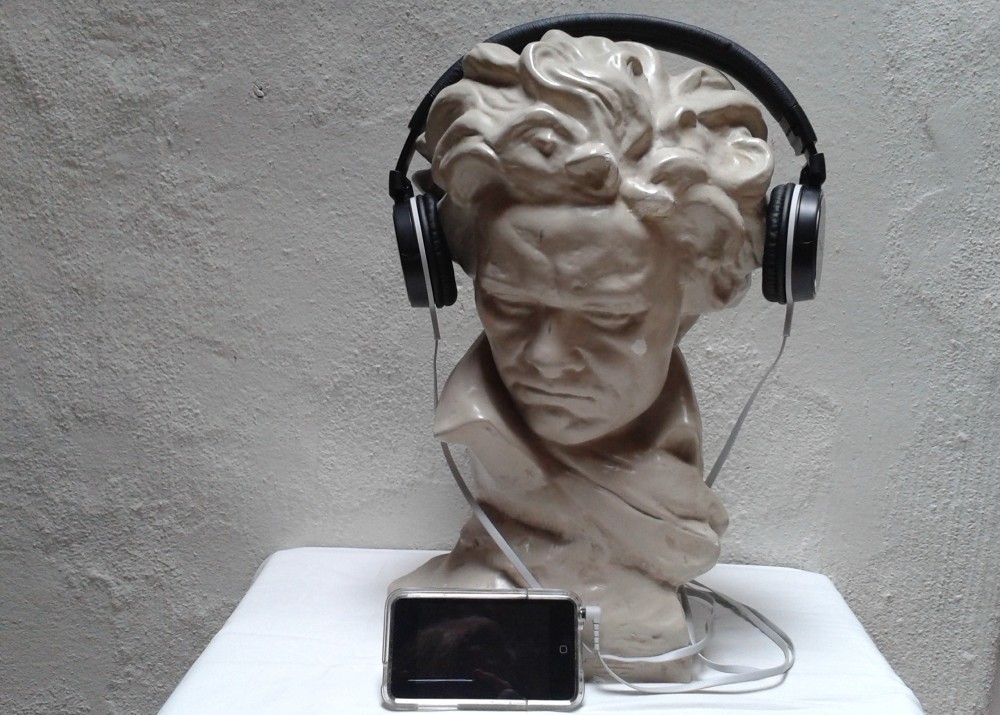Eleventh meeting of the IMS Study Group Music and Media (MaM) in Växjö, Sweden, June 7 – 9 2019
Call for papers: Sounds of Mass Media: Music in Journalism and Propaganda
The past decade has seen a growing scholarly interest in questions relating to music’s role and function in propaganda contexts. Music has a long history in serving the representation of tyrants and in legitimizing totalitarian regimes. For example, throughout the 20th century, composers, musicians and music writers in many countries delivered works, made recordings and participated in concerts that were used for hailing, consolidating and advancing non-democratic political systems and ideologies. Facts and fiction were blended in these efforts to strengthen the ruling political power, especially in conflict situations such as during the anniversary celebrations of the October Revolution in the Soviet Union.
Music that appears in journalist contexts has not been in the focus of research yet. What matters in this context is that it shares features with propaganda music. Music in propaganda and journalism can serve both educational and demagogic policies and functions. It is this border area between information and disinformation of the masses that the eleventh MaM meeting aims to explore and which can, for instance, be detected when analyzing the music on newsreel soundtracks of the 1930s and ‘40s, in TV reports about war and conflict in the 90s or in documentaries about and produced by the political far right of the 2010s. The degree of truthfulness in audio-visual journalism is sometimes difficult, if not impossible, to determine when looking at the so-called infotainment journalism. Journalist segments can be – or appear to be – biased, involuntarily or voluntarily. The presentation of facts in journalism can become partisan or manipulative and in these contexts, music plays a crucial role.
The recent thirty years have seen a quantitative rise in the use of music in journalist formats on radio, TV and the web. As a matter of fact, music has been a part of journalism from the onset of the audio and audio-visual mass media as of the 1910s, for instance, in the newsreel. Moreover, the design of journalism and propaganda have intersected on many occasions. Mass media propaganda, for instance, in the film, relied – and still relies – on employing music. However, the contemporary scholarly community (journalism research, media- and communication scholars, musicologists, film music scholars, etc.) has paid scant attention to music in journalistic and propaganda contexts. Only a handful of research publications about this topic exist to date. Given the recent and ongoing rise of music use in journalism and propaganda, a discussion about the implications of music in non-fictional contexts is due.
We invite speakers to present their research concerning the use of music for journalist or propaganda purposes. Their presentations may focus on – but don’t have to be restricted to – music in journalism and propaganda employing mass media including print media, radio, TV, documentary film, festivals, music theater, political rallies, social media and the web in general, computer games, relevant to both historical and actual examples. Intermedial and multimodal approaches are particularly encouraged. Theoretical frameworks may be taken from musicology, as well as from critical theory, semiotics, cultural studies, discourse analysis, gender studies, postcolonial studies, film and communication studies, journalism, tv and media studies, linguistics, music iconography and the like, and may be employed for presenting and discussing topics including the following (or related to these):
– the creation of mass media music
– the political backgrounds of music in journalism and propaganda
– mass media music in the 20th and 21st-centuries and their historical models
– the impact of music in journalism and propaganda on audiences
– the shape and form of mass media music in informational contexts
– interferences of music and journalist texts
– music in documentaries
– music in journalist and pseudo-journalist videos on the web
– film and popular music in relation to mass media music in non-fictional contexts
– music as a bias of facts
– music in the media landscape of the post-truth era
– the manipulative potentials of music
– clashes of journalist ethics and non-verbal communication through music
– music and sound in journalism
– the impact of music on listeners in information films and radio segments
– music genres and styles in journalism and propaganda
– music migrating between feature film, computer game and journalism
– music advertising for politics and/or ideologies
– music in political campaigns, rhetoric and speeches
– music and utopianism in propaganda contexts
Each speaker will have 20 minutes for the paper plus 10 minutes for discussion. Please include as pdf or Word file: an abstract of no more than 250 words, a biographical note of no more than 150 words, contact details including academic affiliation, if applicable, and any technological requirements that exceed the standard. A projector, stereo and internet access will be provided.
Proposals must be sent to: martin.knust@lnu.se
The keynote speaker is Dr. Emilio Audissino (University of Southampton).
The conference committee is:
Dr. Tobias Pontara, Gothenburg University
Dr. Tobias Plebuch, Uppsala University
Prof. Ulrik Volgsten, Örebro University
Dr. Martin Knust, Linnæus University Växjö
Prof. Emile Wennekes, Utrecht University / chair of MaM
The conference will take place at the Linnæus University Växjö (LNU) from June 7 to 9, 2019, and will be hosted by the Linnaeus University Center for Intermedial and Multimodal Studies (IMS). We invite potential speakers to submit their proposals before March 15. The committee will notify you concerning the acceptance of your paper by the end of March.
